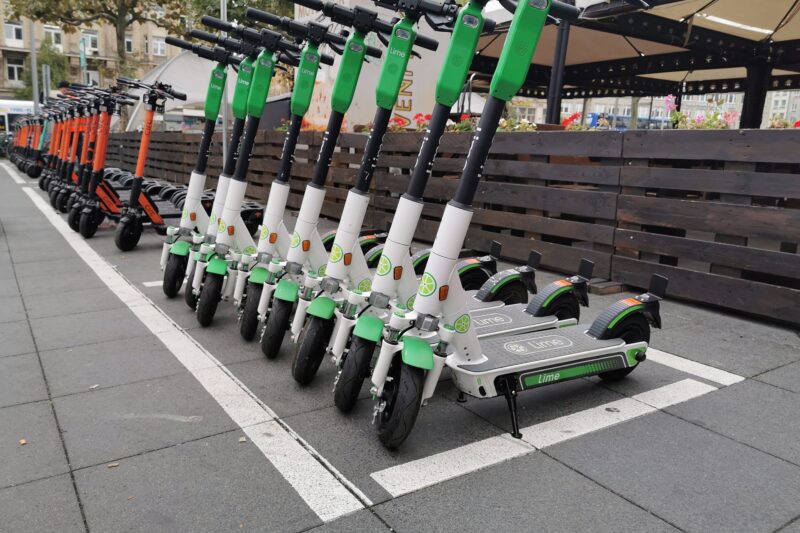As the drive to cut pollution and get people out of cars continues, supporters think they might have found a two-wheeled solution.
A recent trial saw one in five commuters turn to e-scooters instead of taxis and their own cars as they try to beat the rush-hour queues.
This could be good news for the drive to reduce emissions and improve air quality. But what does it mean for car owners and taxi drivers?
E-scooter trials
E-scooter trials started in July, 2020, and, at their peak, there were 32 trials in 55 areas across the UK. By the end of December, 2021, 31 trials remained in operation across 50 areas, and 14.5 million trips had been made.
The Department for Transport’s data revealed that rental e-scooters were “steadily replacing some private motor vehicle and taxi journeys for commuting purposes”, Taxi Point reports.
During a Commons debate, South Cambridgeshire MP Anthony Browne said the evaluation showed a “promising trend towards reducing reliance on motor vehicles”.
He added: “The National E-scooter Evaluation found that by December, 2021, rental e-scooter journeys mostly replaced walking journeys (42%), followed by private motor vehicles or taxis (21%). However, the proportion of walking journeys being replaced reduced over time, while the number of private motor vehicle or taxi journeys being replaced increased over time.
“One of the potential benefits of using an e-scooter instead of driving is that it may reduce emissions and improve air quality. The National E-scooter Evaluation estimated a total reduction of between 269 and 348 tonnes of CO2e (to December, 2021) across the five case study areas due to modal shift from cars to rental e-scooters.”
Are scooters the answer for commuters?
Despite the trend, Mr Browne pointed out that no conclusions could be drawn from the initial trials.
He said: “The department has made no assessment on the potential impact of shared bike or e-bike schemes on the levels of active travel, air quality or emissions.”
While one in five taxi or car journeys may have been replaced by scooters during a 21-month period, it was partly the novelty of the scheme that attracted many riders initially, which the DfT acknowledges.
For people to see it as a realistic alternative to the daily commute, they have to be prepared for all weathers – meaning a change of clothes and possibly even a shower when they arrive at work – as well as being limited by what they can take with them.
It is also one rider per e-scooter, which means that if you are travelling with colleagues or friends, you each have to hire a scooter.
Trusted
And, unlike taxi drivers who know the routes like the backs of their hands, the rider is responsible for getting themselves from one place to another, something that becomes more difficult if they are travelling to an area they aren’t familiar with. Like taxis, which have public hire insurance or private hire insurance, rental e-scooter riders also have to be insured in the event of a crash.
An in-depth survey carried out during the trials found that time and cost savings, convenience and enjoyment attracted people to use an e-scooter.
Female riders reported that they felt safer using an e-scooter than walking home at night.
The e-scooters also provided access to new travel options for some groups, with people from ethnic minority groups and on low incomes more likely to use e-scooters regularly.
Trials such as this are vital for finding solutions to problems such as the daily commute, but it ultimately depends what people are doing – and the state they arrive in – that determines how they get there.
And when it comes to reliability, they can’t beat experienced taxi drivers – who know the routes and the traffic hot spots – to get them to their destination safely and travelling in warmth and comfort.


